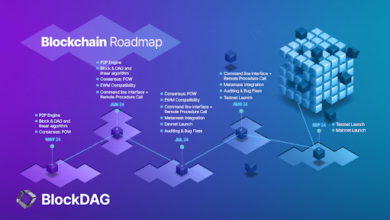Beyond FAQs: Exploring Advanced Applications of Chatbot Artificial Intelligence

Introduction
In the rapidly evolving landscape of artificial intelligence, chatbots have emerged as indispensable tools, transcending their traditional role as mere responders to frequently asked questions (FAQs). The advancements in chatbot technology have paved the way for a multitude of innovative applications that go beyond the basic query-response framework. This article delves into the expansive realm of chatbot artificial intelligence, shedding light on its advanced applications and the transformative impact it has on various industries.
Chatbots as Virtual Assistants
Beyond the realm of FAQs, chatbots are increasingly being employed as virtual assistants capable of handling complex tasks. These intelligent agents are programmed to understand and execute commands, making them indispensable in managing a wide range of administrative responsibilities. From scheduling appointments to setting reminders and sending notifications, chatbots streamline processes, allowing businesses to operate more efficiently.
Enhanced Customer Engagement
Chatbots have revolutionized customer interactions by providing personalized and real-time support. Beyond answering routine queries, they use natural language processing (NLP) to comprehend user intent and context, enabling them to engage in more meaningful conversations. This advanced level of interaction not only enhances the customer experience but also fosters brand loyalty.
E-Commerce Revolution
In the e-commerce sector, chatbots are playing a pivotal role in transforming the shopping experience. These AI-driven assistants can guide users through product catalogs, recommend personalized items, and even assist in completing transactions. This not only enhances user satisfaction but also contributes to increased sales and revenue for businesses.
Conversational Marketing
Chatbots are increasingly becoming an integral part of conversational marketing strategies. Through intelligent interactions, they can capture user data, analyze preferences, and provide targeted product recommendations. This personalized approach enhances customer engagement and contributes to more effective marketing campaigns.
Human Resources and Recruitment
In the realm of human resources, chatbots are streamlining recruitment processes. They can screen resumes, conduct preliminary interviews, and answer candidate queries. By automating these initial stages, chatbots allow HR professionals to focus on more strategic aspects of talent acquisition, saving time and resources.
Healthcare Support
The healthcare industry is witnessing a transformation with the integration of chatbot AI. These virtual assistants can provide information on symptoms, offer medication reminders, and even schedule appointments. In emergency situations, chatbots can assess the severity of symptoms and guide users on the appropriate course of action.
Educational Assistance
Chatbots are making significant inroads in the education sector, providing personalized learning experiences. These AI-driven assistants can offer tutoring, answer academic queries, and even assess student performance. This personalized approach to education enhances student engagement and facilitates more effective learning outcomes.
Finance and Banking
In the finance sector, chatbots are streamlining customer interactions and improving service delivery. They can assist users in checking account balances, transferring funds, and even provide financial advice. Through secure and efficient communication, chatbots contribute to a seamless banking experience for customers.
Technical Support and Troubleshooting
Chatbots are proving to be invaluable in the realm of technical support. They can guide users through troubleshooting processes, provide step-by-step solutions, and even connect users with human support agents when necessary. This not only expedites problem resolution but also enhances overall customer satisfaction.
The Role of Artificial Intelligence in Chatbots
At the heart of these advanced applications lies artificial intelligence (AI), which fuels the capabilities of modern chatbots. Natural language processing, machine learning, and deep learning algorithms empower chatbots to understand context, learn from interactions, and continually improve their performance. This dynamic integration of AI technologies enables chatbots to evolve beyond static responses and engage in more dynamic and context-aware conversations.
The Future of Chatbot AI
As technology continues to advance, the future of chatbot AI holds even more promising possibilities. The integration of emotional intelligence, enhanced multi-language capabilities, and increased personalization will further elevate the capabilities of chatbots. Additionally, the seamless integration of chatbots with other emerging technologies, such as augmented reality (AR) and virtual reality (VR), will open up new avenues for immersive and interactive experiences.
Conclusion
The evolution of chatbot artificial intelligence extends far beyond the limitations of frequently asked questions. These intelligent agents are reshaping industries by serving as virtual assistants, enhancing customer engagement, revolutionizing e-commerce, and transforming various other sectors. As the capabilities of chatbot AI continue to advance, businesses and industries are poised to benefit from increased efficiency, improved customer satisfaction, and innovative solutions to complex challenges. The future holds exciting possibilities as chatbots evolve to become even more integral to our daily lives, ushering in a new era of intelligent and interactive technology.





